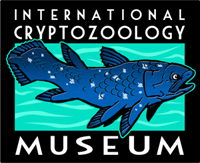Pay The Bigfooters!
Posted by: Loren Coleman on September 27th, 2009
Editorial
During my presentation on “cryptoconsulting” at the Texas Bigfoot Conference, I called on researchers, authors, and Bigfooters to stand together in looking at who is making money from the popular cultural subject of Sasquatch and other cryptids ~ and demanding your fair share.
While I agree that interviews that are breaking news, of eyewitnesses, should be not constructed with paid footage, we have to start examining how reality television programs and other creations are being made and used by others to make money.
Who makes money off Bigfoot? It sure wasn’t Bob Gimlin and Roger Patterson, despite rumors and half-baked theories saying otherwise.
Think about it. It’s been the beef jerky sellers, car companies, toy makers, multinational news organizations, reality television programs, and the media in general, most often with silliness created by hoaxers or fringe interviews, often tinged with ridicule, who are making big bucks. Forums, email back-biting, and other outlets act as if the problem exists with a marginal hundred dollars here or an appearance there that is suppose to have made alleged money for someone. While not true, it causes a distraction away from the real people making money from Bigfoot. A few outfitters, authors, researcher organizations, and consultants make peanuts compared to what the majority of non-Bigfoot people make off of us…yes, you and me. We are in this together, after all.
I issued a challenge to Bigfooters and Sasquatch researchers during my talk to quit guilt-tripping each other, fighting over the scraps thrown in our direction, quit eating our own, and look to standing shoulder to shoulder in demanding a business-like relationship with the media, reality television and others ~ with signed contracts, compensation, credit ~ for payment for our work. No one is funding this research but money is being made by the source corporations that keep using our raw materials.
Whereas producers, executive producers and production costs can easily be in the budget for almost two-thirds of the cost of the average $275,000 per hour total for a cryptozoology documentary, most “experts” and “research organizations” who make up the bulk of the footage get nothing and a thank you or something like $500 to $1000 in fees. And don’t forget, look at who is making money from the ads in between those “search parties” during these programs looking for hairy hominoids. Do you think any of these people care as much about Sasquatch as we do, or are they only interested in the popular appeal of the icon of the mystery of Bigfoot in the woods?
The unfortunate reality is that people want to appear on television so much, often for attention-seeking and ego-related reasons, the media and reality production companies take advantage of this, often going with free appearances by individuals who end up not representing Sasquatch research with the same respect you and I have for the topic.
As part of my presentation, I showed the following video that has things that need to be heard from a different topic area about this problem in our field. (Some dramatic language is used to make the points raised by Harlan Ellison in Dreams with Sharp Teeth, which I purchased, by the way, to use in my presentation.)
++++
If we all were paid as much for what Bigfoot was worth in our society, we won’t have to rely on each other to assist with supporting organizations and collections like the ICM. But it is the ten and twenty dollar donations, here and there, from each other that keeps us in the game.
Thank goodness for community.
Join the past patrons in making a difference and supporting the International Cryptozoology Museum as it opens in downtown Portland, Maine.
Please click on the button below (not the one up top) to take you to PayPal to send in your museum donation.
If you wish to send in your donation via the mails, by way of an international money order or, for the USA, via a check (made out to “International Cryptozoology Museum”) or money order, please use this snail mail address:
Loren Coleman, Director
International Cryptozoology Museum
PO Box 360
Portland, ME 04112
Thank you, and come visit the museum at 661 Congress Street, Portland, Maine 04101, beginning November 1, 2009!!
About Loren Coleman
Loren Coleman is one of the world’s leading cryptozoologists, some say “the” leading living cryptozoologist. Certainly, he is acknowledged as the current living American researcher and writer who has most popularized cryptozoology in the late 20th and early 21st centuries.
Starting his fieldwork and investigations in 1960, after traveling and trekking extensively in pursuit of cryptozoological mysteries, Coleman began writing to share his experiences in 1969. An honorary member of Ivan T. Sanderson’s Society for the Investigation of the Unexplained in the 1970s, Coleman has been bestowed with similar honorary memberships of the North Idaho College Cryptozoology Club in 1983, and in subsequent years, that of the British Columbia Scientific Cryptozoology Club, CryptoSafari International, and other international organizations. He was also a Life Member and Benefactor of the International Society of Cryptozoology (now-defunct).
Loren Coleman’s daily blog, as a member of the Cryptomundo Team, served as an ongoing avenue of communication for the ever-growing body of cryptozoo news from 2005 through 2013. He returned as an infrequent contributor beginning Halloween week of 2015.
Coleman is the founder in 2003, and current director of the International Cryptozoology Museum in Portland, Maine.











I often wondered how the professional investigators on these documentary shows were compensated for their work. It looks like my first intuition to suspect that the answer was ‘not well’ may have been correct. Do the guest researchers get residuals or a percentage of the profit? My fear is that you get a one time stipend and an on-air mention of your books in exchange for your face time.
With so many amateurs running around passing themselves off as experts it seems to me that the producers wield a pretty big hammer with which to bludgeon committed researchers. Too often these amateurs are little more than attention whores willing to make the most outrageous claims in order to find their way onto television. Producers of these programs are always willing to profit from their buffoonery.
The only recourse you guys have is to start producing your own projects. You must own your work. Without your expertise and name recognition, History Channel, SyFy, Discovery, and TLC would need to retool and head in a different direction. Whenever they present a program with some local yahoo I have never heard of billed as their expert, I discount the whole program. Destination Truth is suffering because of this trap. Too often their experts come off as nuts, superstitious witch doctors, or attention whores.
It’s a tough call and a gutsy stand. But, they need you more than you need them.
But I go into answering too much of a dialogue on this, I also spoke to the unfortunate questions that people feel they can ask authors and consultants, like “how much did you make for that book,” “how much were you paid for doing that,” and/or “can I have a free copy of your work (DVD, book, etc.) to see if I like it.”
That said, let me respond to some of what mtdesertislander is saying, before it’s off to the zoo this morning with the Tyler folks:
“Do the guest researchers get residuals or a percentage of the profit?”
No, not at all. Interviewees on doc programs are not actors or talent as per movies. We get nothing, usually, into the future, if we get anything at all.
“My fear is that you get a one time stipend and an on-air mention of your books in exchange for your face time.”
The majority of appearances are by people giving away their “expertise” and time (listen to the end of the video about again), and most do it for free, thus making hard for those oldtimers who rely on these shows for a living/research costs/travel expenses. Most programs don’t think they should pay anyone anything (again, see video). But thousands and thousands of dollars are involved in these productions, while little is given to anyone you see on screen.
I have to laugh about the “mention of books” business. Most tv programs lie to your face and say, “Oh, we have a policy, we can’t credit your book.”
Then you watch and someone more famous with a better contract gets their book credit underneath their name.
It’s a terribly demeaning process, actually, asking for what should be given with respect and more easily.
“The only recourse you guys have is to start producing your own projects.”
This is unrealistic, and the media knows it. Multinational corporations own the airwaves, come up with millions of dollars in funding for their programs, because they are making millions in ads for more millions made by the businesses behind them. Distributions, production, crews, and more are controlled. I’m not dwelling in some fantastic conspiracy world when I say this, but merely stating the obvious. “Producing our own projects” is somewhat unrealistic, but being paid fairly for the work delivered is a realistic demand…if cryptopeople worked together.
I applaud your choice of Harlan Ellison as spokesperson! I love his work and eagerly read/see/hear everything I find that has anything to do with him. He’s one of the truly great authors of not only our time but all time. (Yes, I have bought a lot of his work too)
Being an artist myself, I can relate to the dilemma regarding payment for artistic or intellectual work. But there is also a sort of universal willingness on the part of artists to want to donate work. Maybe we want to imagine that we’re somehow above it all, above the rat race, I mean. As the great humorist and actress Lily Tomlin once said, “The problem with the rat race is, if you win, you’re still a rat”. 🙂
So I think that part of the problem lies with artists and authors themselves, either undervaluing, or in some cases overvaluing, their own work.
I love Harlan Ellison, not only as a writer, but as a person. He is absolutely right on this issue–absolutely.
They stiff the author/expert, in large part, because so many among these groups are so happy to be recognized in any way, that they will just give interviews for free.
Science fiction, like cryptozoology, is considered by most large media outlets to be a small-audience niche market. It doesn’t matter that Star Trek, Babylon 5, and Battlestar Galactica have made a lot of studio executives a lot of money–the audience for these shows is still considered to be a small proportion of the entire viewing public. Therefore, executives can leverage creative types like writers with this information, and a huge number of these writers, as Ellison notes, will cave and do work for free.
Cryptozoology-based reality TV shows are going to have even smaller market shares than the big science fiction franchises, and this fact is being used against the real experts in the field just as the small market share for science fiction has been used against Ellison.
But as he notes, and as you must understand–small market share is matter of perception. Yeah, the market share for MonsterQuest is small compared to say, the market share for Heroes, and its market share is small compared to say, any one or more of the Law and Order shows, but those small shares still represent millions of dollars in advertising revenue. These shows make less money than the big mainstream shows, but they still make considerable amounts of money for their networks and producers–so don’t be fooled by the smaller market share snow job.
They can still afford to pay you all something decent.
You just need to get together and figure out what a decent going rate for your time is–and stick to it.
Hell, start up a union or something. (Can we tell I grew up in coal country?)
Great post–and a great clip of Harlan being himself.
Great presentation this weekend.
Years ago comic book artists were in a similar position. They got paid a low wage only for the initial drawing of the pages they produced, with no option for royalties on the profits the company earned off of said artwork. It was in the 70’s that a few of the prominent artists banded together to essentially unionize themselves (sort of a co-op really), and after a fairly nasty (as I recall, though my memory is far from perfect) fight with the publishers, they won the right for comic artists to get a bit of the profits earned on their work, as well as retaining all rights to their own artwork.
I too agree about Harlan Ellison. Great writer and great guy.
I’m reminded of those old commercials with the “look for, the Union label” jingle… and now I’ve got the song stuck in my head!
I agree with Loren’s thoughts, but I’m not sure how you apply them.
There are a limited number of people who could draw comics well enough to make them commercially viable. There doesn’t seem to be a limit on the number of available cryptozoological enthusiasts. There is a limit on the number who have done significant field research or published significant contributions, but those standards can be broadened as needed by producers seeking cheap/free talent.
This is not “Well, if I don’t do it, someone else will:” – it’s “There’s an unlimited number of people who will do this for what they are offering, and I think I can do it better.”
I’ll share some personal experiences. I’ve consulted twice on TV crypto (one appearance made, one to tape next month) for different shows. On the first one, I simply never thought to ask about fees, etc. until it was way too late. One the second, I did ask, more than once, but when persistently rebuffed with “we never pay” I said I’d do it anyway because the alternative was to be shut out of the only program ever done (so far) on a subject I’d worked hard on. As with the first show, I wanted to be on there to explain the science and try to get it right, not to have them go to someone who hadn’t put the research into it and might just say whatever got them on the show.
I’m the first to admit it’s cool to be on TV for the first time since being an extra on The Waltons. If I thought the company would then turn to someone like Loren and pay him if I refused, then I’d refuse. But they wouldn’t.
I know this sounds like self-justification, and maybe it is. But I thought recounting specific examples would help clarify the issue and help us identify the problem and the right approach to it.
I agree it is currently unrealistic–if we continue to bow our heads and do nothing. Times are changing. Technology is changing. People like you, Loren, are in a position of leadership and could pull together this community and challenge the ‘establishment’, so to speak.
As it stands, these shabby programs are doing as much harm to Cryptozoology as good.
Everyone here has something they could contribute to the making of union documentaries, and a large portion actually would give if so inspired. If you were to engage this community in a discussion, and a decision was made to collectively fund and produce your own ‘union’ documentaries, I imagine it would go something like this:
UNION: Do you have funds, equipment or skills to contribute?
PETEROTOOLE: Yes, I have video and audio equipment, experience as a videographer, and time.
That’s just one guy! The number of skilled, talented, resourceful members of this community must be equal to that of a fair sized town.
LOL jeremy_wells,
I’m old enough to remember (with delight) the “Look for the Union Label” skit on Saturday Night Live. It’s completely politically incorrect these days and impossible to find but it’s one of the most hilarious bits they’ve ever done 🙂
Found this today Loren, and thought of your talk.